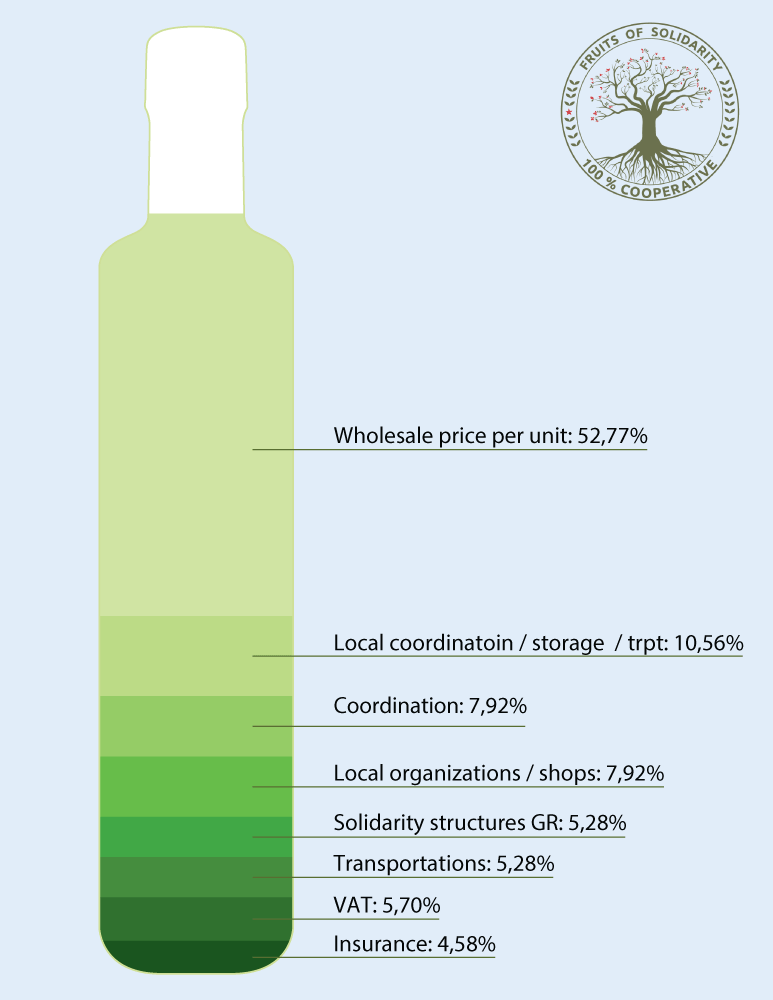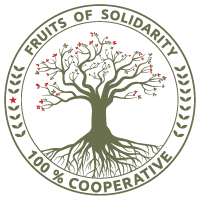What we do
“Trade is more than the mere economic activity of exchanging goods and services. It is a social interaction among people.” The International Fair Trade Charter, 2018.
In nature, all activities are interconnected. Just as trees form an underground network through which they are nourished and exchange useful ingredients, thus constructing their ecosystem, so does “fruits of solidarity” build a collaborative network between productive and manufacturing cooperatives of Social and Solidarity Economy in Greece together with foreign organisations and cooperatives.
“Fruits of solidarity” emerged in the context of the international support shown to Greek self-organised solidarity structures during the years of the country’s profound crisis. It is inspired by the values and principles of the “Solidarity Economy Based Circuits” (E. Mance 2011).
Through the fair distribution of—mostly agricultural—processed products, financial support is extended to producers, initiatives, and actors (formal and informal) who pursue social change through collective action. Check it at a glance.
How does it work?
“Fruits of solidarity” consists of hubs within a wider network of production, distribution and consumption that is based on the principles and values of solidarity economy.
For the time being, distribution is conducted in two ways:
Α) As a campaign that is coordinated by a national/local coordinator, usually a non-for-profit organisation or an informal citizens’ initiative. The coordinator contacts the facilitator in Greece, plans the campaign and finds the local actors interested in becoming involved, undertakes all logistics of preliminary orders up to the moment when the products are marketed in the distribution points. The coordinator organises events and promotes the message chosen by the campaign. Marketing is usually completed within 1 to 3 days.
The “Facilitator” for the operation of this network is “DOCK – Social Solidarity Economy Zone”. The facilitator is responsible for all communications and management of operations between producers and foreign partners (such as transportation, transactions, finding reliable partners, etc.) Furthermore, the facilitator is responsible for providing adequate information to involved parties on how they are expected to operate, given that they must observe certain preconditions and criteria. The facilitator does not resell products and does not determine their price.
Β) On the shelf: In this case, marketing takes place in steady and permanent spots, such as cooperative grocery stores, consumer groups, and social centres which carry out the process together with DOCK. Permanent points of sale can also organise events and campaigns to promote their message of “fruits of solidarity”.

Who gains from “fruits of solidarity”?
“Fruits of solidarity” financially supports in a transparent and mutually accepted way:
a) participating cooperatives;
b) the supporters/buyers of the products of the campaign, as they obtain quality products at more affordable prices;
c) collectives organising or participating in campaigns abroad, or operating as distribution points;
d) self-organised initiatives in Greece. Read More
e) DOCK, which is a permanent infrastructure supporting social and solidarity economy and cooperatives in Athens.
One of the main targets of this network is to render groups sharing a common vision for society and the economy financially sustainable.
How is the final price shaped?
The final price is shaped in agreement with all parties involved. The price given by producers is the base price and further costs vary according to each country and the means of distribution employed.
The example of Belgium
Indicated rates refer to the final price in 2019.


